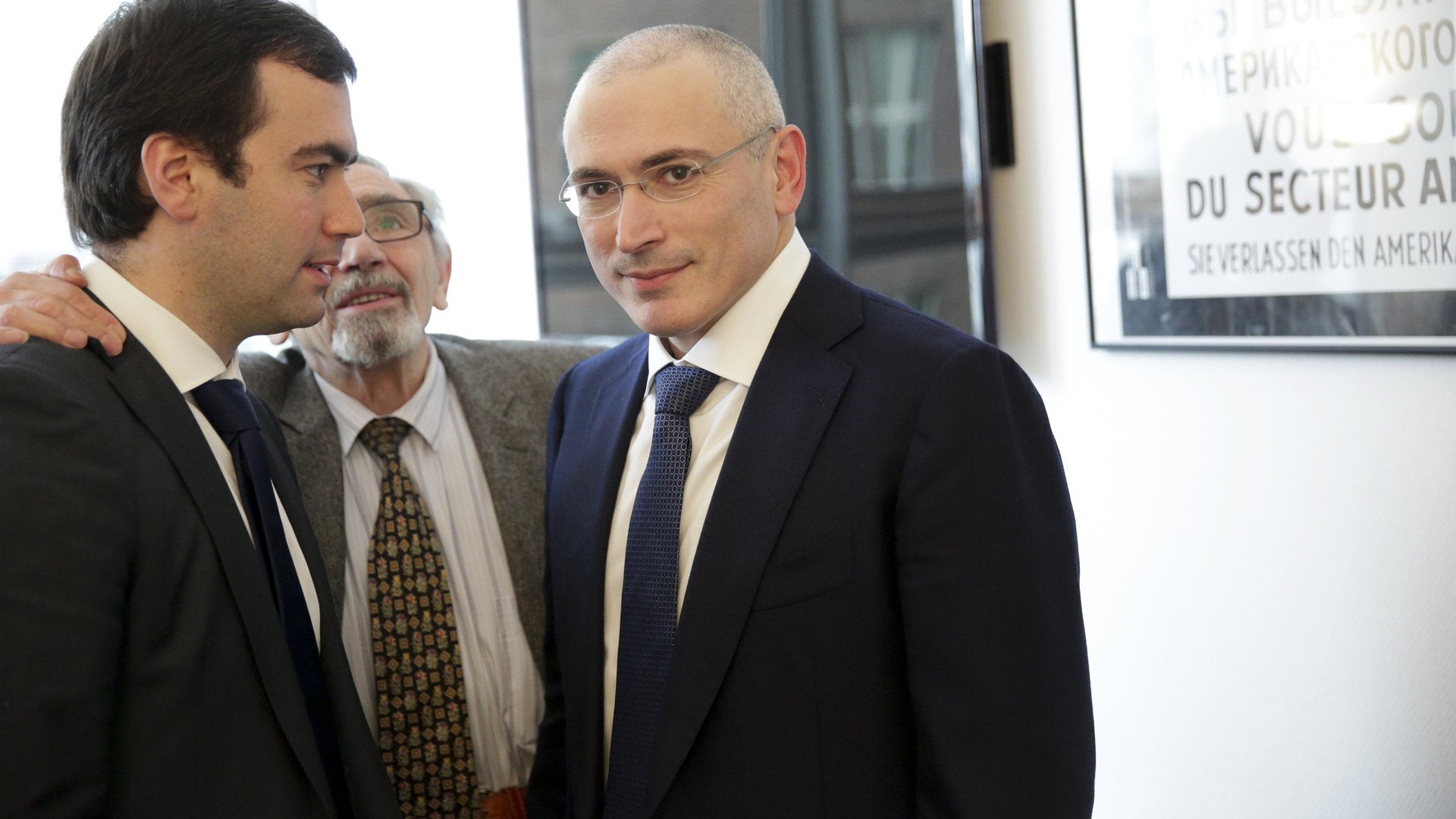Vladimir Putin extracted two crucial promises before releasing a former oil baron from prison
After 18 months of talks, Russian President Vladimir Putin sought two assurances (paywall) before ending Mikhail Khodorkovsky’s decade-long imprisonment: not surprisingly, the first was that the former petroleum magnate vow to stay out of politics. But the second was equally and perhaps even more important—that he not seek the restoration of his private petro-empire, which Putin seized and then used to make state-controlled Rosneft one of the world’s largest oil companies.


After 18 months of talks, Russian President Vladimir Putin sought two assurances (paywall) before ending Mikhail Khodorkovsky’s decade-long imprisonment: not surprisingly, the first was that the former petroleum magnate vow to stay out of politics. But the second was equally and perhaps even more important—that he not seek the restoration of his private petro-empire, which Putin seized and then used to make state-controlled Rosneft one of the world’s largest oil companies.
Last month, Khorodkovsky agreed to the two promises in a letter written long-hand and delivered to Putin through former German Foreign Minister Hans-Dietrich Genscher. On Dec. 20, he was released and flown to Berlin.
Today, as Khordorkovsky speaks of aiding civil society and working to free those still languishing in Russia’s prisons, his professional beginnings are a vague memory. But back in the 1990s, when he built Yukos Oil, he often seemed to be the toughest and most ruthless of the outsized business magnates who dominated and symbolized the chaotic and lawless age when Boris Yeltsin was president.
“He was a shrewd, tough, ruthless oligarch. He pushed the government around,” David Hoffman, author of The Oligarchs, a biography of the titans, told Quartz. In his book, Hoffman describes Khodorkovsky as a “winner-take-all” player who defaulted on hundreds of millions of dollars in loans to western banks.
Under Khodorkovsky, Yukos produced 1.7 million barrels of oil a day and made him a billionaire. But after he pushed into politics—something Putin had warned against when he became president—he was promptly arrested.
Putin lieutenants then organized a rerun of the rigged 1990s auctions in which Khodorkovsky obtained Yukos. In 2004, Yukos, then worth an estimated $20 billion, was sold for back taxes at a firesale price of $9.3 billion to a front company that three days later sold it on to Rosneft. Deals since then with BP and others have made Rosneft one of the largest oil companies in the world.
But lawsuits filed in Europe and the US since then by Yukos’s former shareholders continue to trail Rosneft. One set of lawsuits in The Hague amounts to $114 billion. But Khodorkovsky, now free, could go after Rosneft as well since he arguably lost the most.
“Putin is trying to protect state capitalism,” Hoffman said. “He wanted a commitment that Khodorkovsky wasn’t going to try to unwind the destruction of Yukos.”